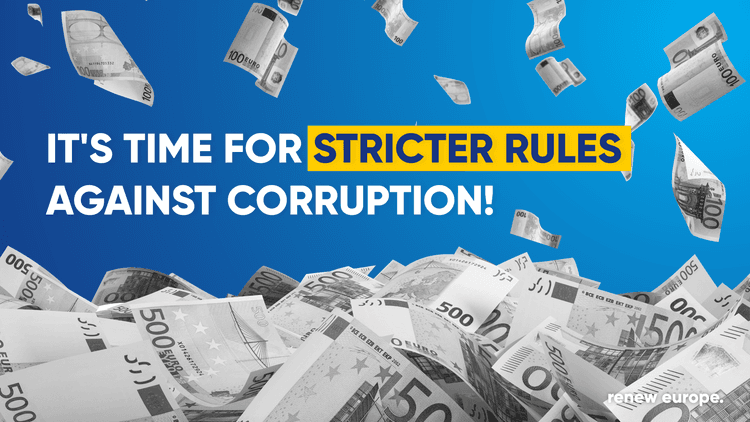
New rules to fight corruption across Member States and within EU institutions were today endorsed by the Committee on Civil Liberties, Justice, and Home Affairs. The report, drafted by MEP Ramona Strugariu, sets out a solid and ambitious mandate for the European Parliament ahead of upcoming negotiations with the Council on strengthening the existing toolbox to ensure decisive action to prevent, detect, and prosecute corruption.
Ramona Strugariu (REPER, Romania), the European Parliament's head negotiator, said:
“Corruption kills and will continue to do so in complicity and silence. Corruption impoverishes, destroys lives, silences journalists and activists, erodes the state and our democracies. Significant financial resources flow from public budgets into the pockets of perpetrators of corruption every year. This robs us of resources that should be invested in education, healthcare and infrastructure. We managed to extend corruption offences. Those who conceal their ill-gotten gains or abuse public office responsibilities must face the rigours of the law, corrupt politicians should not benefit from pardons or amnesties. Harmonised rules can only be efficient if we have effective prevention measures in place.”
The report aims to criminalise all forms of corruption offences and harmonising penalties across the EU. For instance, the scope of corruption crimes is proposed to be expanded from only bribery to cover all relevant offences, such as misappropriation, trading in influence and abuse of functions. The Renew Europe rapporteur pushed for going further than the Commission proposed and adding the two new offences of concealment of property gained through corruption and misconduct in public office. In a move to stop corruption within EU institutions, our group also managed to include the definition of high-level officials and explicitly mention EU Commissioners, MEPs, and party officials.
As preventative measures, the report calls for the creation of specialised anti-corruption bodies and an EU anti-corruption coordinator to streamline actions, as well as ensuring critical preventive tools, in particular effective rules for the disclosure of conflicts of interests in the public sector and for the verification of assets of public officials.
Further, the report outlines that the Member States' preventative obligations shall be clear and unambiguous, with a greater focus on monitoring circumstances sensitive to corruption, such as revolving doors between the public and private sector, potential conflicts of interest, and unexplained assets of public officials. Renew Europe wants to see proper regulation of lobbying activities, as well as clear and transparent rules for the financing of political parties and electoral campaigns financing.
Finally, it was a key priority for Renew Europe to stop criminal investigations from being hindered by the immunity of suspects and for perpetrators to escape consequences by hiding behind legal schemes. For instance, the report tasks Member States with ensuring that privileges and immunity can be lifted during corruption investigations.